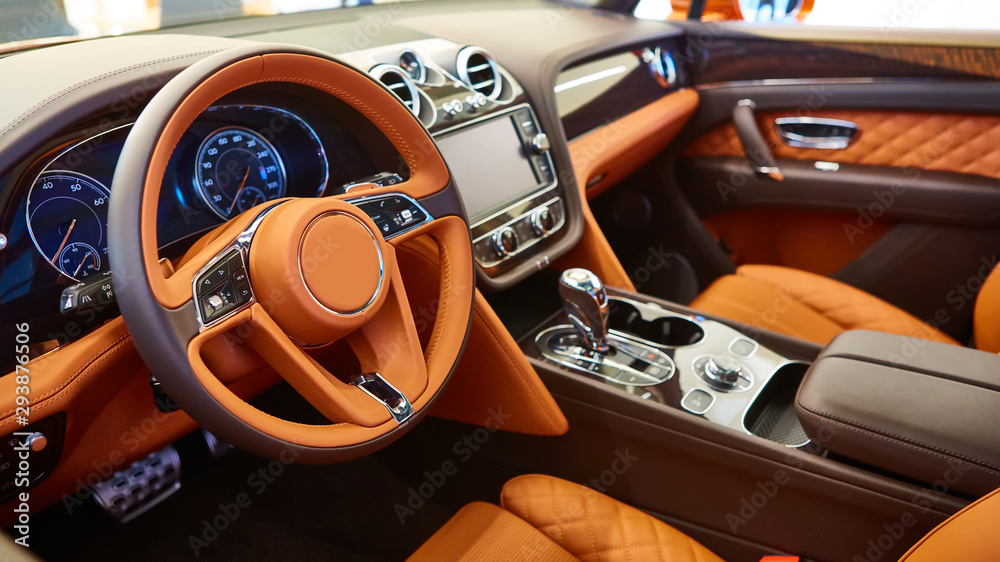Some people only use cars as a way to get from one location to another, while others use them for their comfort and style. The choice of vehicle for persons in the latter group is typically a premium vehicle. It is many people’s prized possession and a dream. These vehicles cost a lot of money, and because of their price, they require special maintenance and attention. As a result, any damage to these vehicles may necessitate high repair costs. As a consequence, these vehicles must have insurance; nevertheless, it is still unclear whether comprehensive or third-party coverage is preferable. Although this query is relevant to all types of automobiles, let’s now talk about it in terms of luxury car insurance.
The Need Luxury Car Insurance
The first justification for why a luxury car needs insurance is because, in accordance with the Motor Vehicles Act of 1988, third-party auto insurance is required. This implies that all vehicles operating on roads must have third-party insurance, which protects against responsibility in the event that a third party sustains damage or enjoys a benefit.
Luxury cars require comprehensive insurance since, in addition to covering third parties, it also covers individual damage. The cost of any luxury car repair or damage is high. A premium car has many expensive parts, so if anything is damaged, the costs will be enormous. The majority of these costs will be covered by the insurance provider if the car is insured.
Cost of Luxury Car Insurance
The following criteria determine how much a car’s insurance costs, and this class of automobiles is no different.
- Model of the vehicle
- Automobile manufacturer
- Place of purchase
- The vehicle’s age
- Bonus for no claims
- History of claims
Once all of these facts are provided, the pricing will also depend on the insurance plan selected, such as whether comprehensive or merely third-party vehicle insurance is selected, as well as the add-on coverage that is chosen.
Why is a Luxury Car’s Insurance So Expensive?
The cost of luxury vehicles is a major factor in why their insurance is also high. The insured declared value, or IDV, of the vehicle determines the cost of insurance. This is the most the insurance company will spend on the vehicle in the event of a total loss, such as a theft. Luxury cars cost more than normal cars, and as a result, their insurance is also more expensive.
Precautions to Take Before Purchasing Luxury Car Insurance
Having only third-party auto insurance is not the best course of action, particularly when it comes to luxury vehicles, which are quite expensive both to purchase and to repair should they sustain damage. Consequently, purchasing comprehensive insurance is the best move. There are a few fundamental considerations to make when purchasing insurance to make sure you get the proper coverage where you need it.
Select Coverage & Add-on With Care
First, carefully select the coverage you require, and then pick the add-ons you will require and are right for you. Adding extras without putting in the effort, you risk overspending or not having the appropriate insurance. Long-term outcomes for either of these situations are poor. Add-on coverage is insurance for items that are either excluded from or not covered by a basic auto insurance policy. You should be aware of all your alternatives and select those that are required. Return to invoice, engine protection, roadside assistance, and zero depreciation are some recommended supplemental insurance policies. Let’s briefly discuss these:
- Roadside assistance: If you become stuck in the middle of the road, this service can aid. If necessary, the insurance provider will haul the vehicle away and send a mechanic.
- Engine Protection Cover: If the engine of a luxury car is damaged or malfunctions, the repair costs will be high. If an engine protection cover is present, the insurance provider is responsible for all of these costs.
- No Claim Protection: A no-claim bonus might be compared to a discount that the insurance provider gives if there are no claims during the policy year. However, this discount is not valid if there is a claim. The bonus remains intact if you choose the no claim protection insurance, and you are still eligible to claim it even after filing a claim.
- Return to Invoice Cover: The insurance carrier is only obligated to pay the insured declared value at the time of a claim, even if the IDV is less than the invoice value. However, if you have the add-on cover of return to invoice, you will be compensated for a total loss at the invoice amount.
Determine Your Premium
You can determine the cost of your automobile insurance by using the calculators that are available. This will help you have an idea of the premium you’ll have to pay, and if it’s too much for you to manage, you may adjust the coverage or add-on you’ve chosen and assess how the cost will vary. This will also assist you in determining which add-ons are necessary and which are not.
Examine Policies
Always review the policies of a few insurance providers to see the premium charged and the coverage provided before paying the premium. These two elements of an insurance policy are crucial and should not be ignored. One must be certain of their choice and the cost before making a purchase.
There is no question that insurance is necessary for every vehicle on the road, including premium vehicles. The best option is comprehensive insurance even if third-party car insurance is required by law. Because of its features and high quality, luxury cars are noted for being expensive. These cars can be quite expensive to damage and repair after being purchased for a significant sum of money. So, make informed decisions and take good care of your ideal vehicle.


